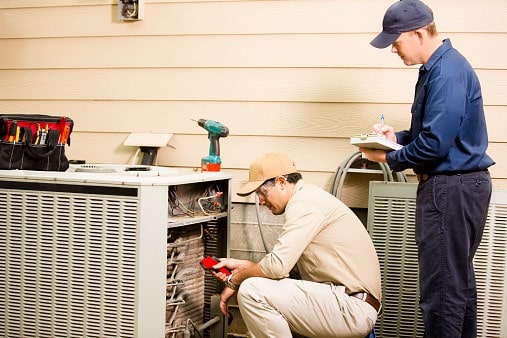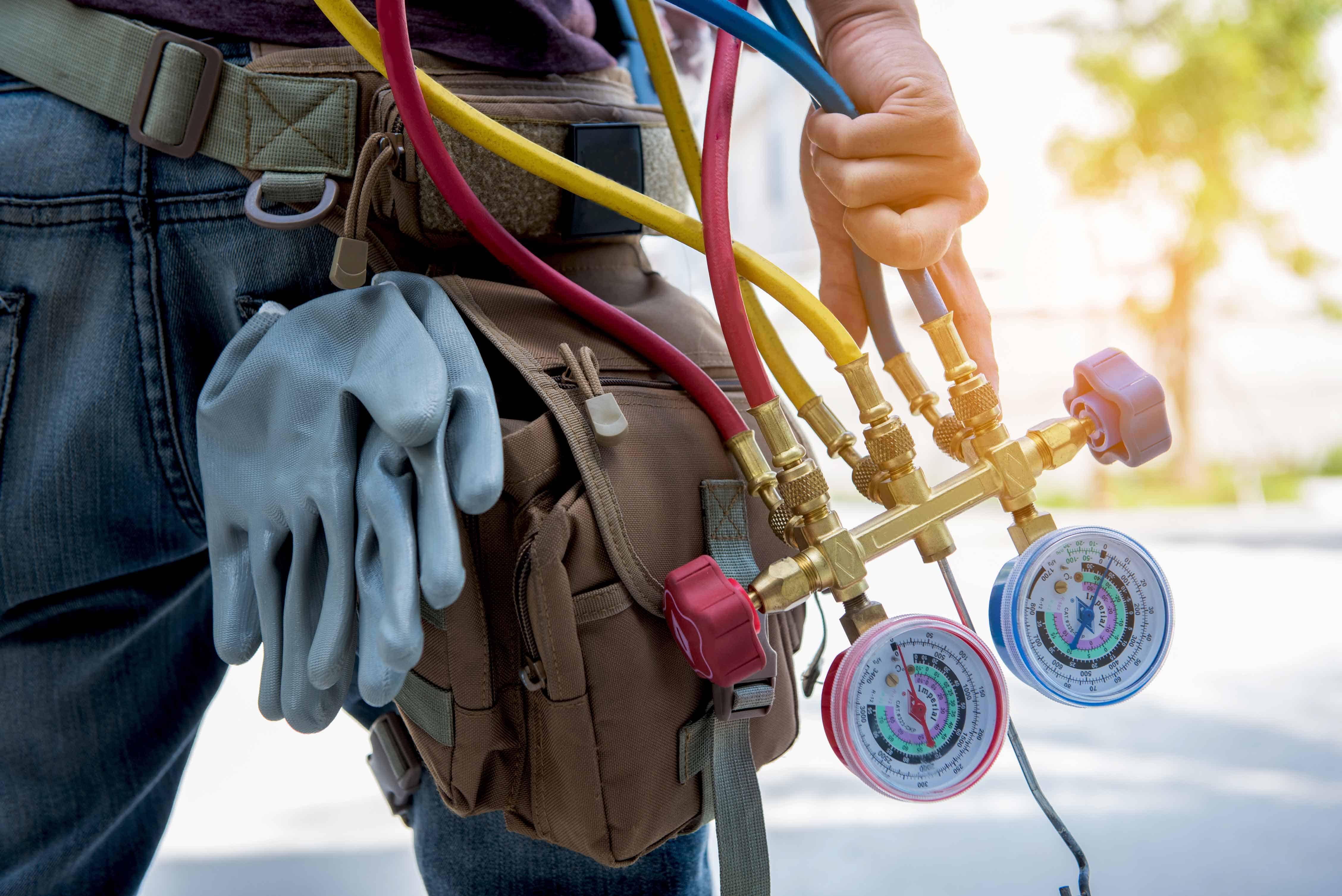HVAC Jobs Only helps you advance your professional career path
The Future of HVAC Employees: What You Required to Find Out About Task Opportunities
The HVAC market is going through significant improvement, affected by innovations in technology and an expanding focus on sustainability. As energy-efficient systems gain traction, the need for knowledgeable workers is expected to climb. Future cooling and heating specialists will require to adapt to these changes. Recognizing emerging trends and essential skills will certainly be crucial for those looking to grow in this progressing landscape. What might these changes imply for career possibilities in cooling and heating?
Arising Fads in the A/c Industry
As the need for energy performance and sustainability expands, emerging patterns in the cooling and heating sector are reshaping how specialists approach their work. The combination of wise innovations goes to the center, with intelligent systems permitting real-time surveillance and control of heating and cooling procedures. This change not only improves comfort but likewise considerably minimizes energy usage. In addition, the use of eco-friendly refrigerants is obtaining traction, in action to governing changes and a collective press towards greener choices.
Additionally, versatile and modular heating and cooling systems are coming to be a lot more preferred, making it possible for much easier installment and personalization to fulfill particular needs. Training and qualification in these sophisticated innovations are necessary for heating and cooling experts to stay competitive in the evolving market. Generally, these patterns indicate a transformative period for the industry, stressing the importance of advancement and versatility in securing future job possibilities for HVAC employees.
Crucial Abilities for Future Heating And Cooling Specialists
Effectiveness in vital skills is necessary for future cooling and heating professionals maneuvering a rapidly evolving sector. Technical acumen in locations such as refrigeration, electrical systems, and thermodynamics stays foundational. Knowledge of modern-day heating and cooling innovations, including wise systems and automation, is progressively substantial as structures become more interconnected.
Solid troubleshooting skills enable specialists to identify and resolve concerns efficiently, lowering downtime and enhancing client complete satisfaction. Interaction skills are also important, as technicians need to often describe complicated principles to clients and work together with various other professions
Furthermore, an understanding of safety and security protocols assures that cooling and heating workers can do their tasks without compromising safety requirements. Versatility is critical, as the market continues to develop with brand-new guidelines and technologies.
The Impact of Energy Effectiveness and Sustainability
While the need for cooling and heating services remains to grow, the focus on energy efficiency and sustainability has transformed the industry landscape. As environment change issues climb, both customers and regulative bodies are prioritizing green services. This change has actually brought about enhanced fostering of innovative modern technologies such as smart thermostats, variable cooling agent circulation systems, and energy-efficient tools. Cooling and heating specialists are currently called for to have expertise of these developments and their setup processes.
Furthermore, companies are incentivized to adopt energy-efficient systems through tax credit ratings and rebates, better boosting need for skilled employees who can carry out and preserve these services. As business look for to reduce functional costs and boost their environmental impact, the duty of a/c specialists is developing. Comprehending lasting techniques not just enhances their bankability however also places them as crucial contributors to a greener future, ensuring a crucial duty in the recurring change toward energy-efficient building methods.
Occupation Advancement Opportunities in Cooling And Heating
Various job innovation opportunities exist within the cooling and heating industry, mirroring its vibrant nature and growing demand for experienced specialists. Entry-level specialists can progress to specialized functions, such as installment experts, service supervisors, or system developers - HVACJobsOnly. As they get experience and certifications, employees can change into managerial positions, managing groups and procedures
Continuing education and learning is crucial, with many experts seeking advanced certifications from organizations like the HVAC Excellence or the Refrigeration Service Engineers Culture. These qualifications can improve work leads and potential earnings.

Additionally, the increase of environment-friendly innovations supplies methods for HVAC employees to focus on energy-efficient systems, additionally broadening their job courses. Opportunities also exist in sales and customer support, where technological expertise boosts customer connections. The Cooling and heating area not only provides a steady occupation however also cultivates development and advancement, encouraging people to expand their skills and knowledge continually.
The Duty of Innovation in Shaping HVAC Jobs
As technology proceeds to useful reference progress, its effect on heating and cooling jobs comes to be significantly noticable, changing exactly how specialists approach upkeep, installment, and repair tasks. Automation and smart systems have actually changed conventional approaches, allowing specialists to remotely keep an eye on equipment and identify problems with accuracy. These developments not just boost effectiveness yet also minimize downtime, inevitably profiting both employees and consumers.

The emergence of eco-friendly energy innovations, such as solar and geothermal systems, is broadening task chances in the Heating and cooling sector. The role of technology is not just a tool for renovation however a stimulant for development and technology within the market.
Frequently Asked Concerns
What Is the Typical Wage for Heating And Cooling Employees in 2023?
In 2023, the ordinary salary for a/c workers in the United States is roughly $50,000 each year - HVAC Jobs Only. Elements such as experience, area, and specialization can substantially influence specific profits within this occupation
Are There Job Opportunities in Heating And Cooling for Entry-Level Workers?
Yes, there are task opportunities in heating and cooling for entry-level workers. Many business look for people ready to learn, providing training programs and apprenticeships. This sector proceeds to increase, using numerous roles for newcomers in the sector.
Just How Does Accreditation Effect A/c Work Potential Customers?
Certification significantly boosts cooling and heating work leads by demonstrating know-how and dedication to the area. Employers typically like certified important source prospects, watching them as more certified, which can cause enhanced possibilities and potentially higher wages for certified technicians.
What Geographic Locations Have the Greatest Need for Heating And Cooling Employees?
The highest demand for cooling and heating employees usually exists in metropolitan regions with extreme climates, such as the Southwest and Northeast USA. Fast populace growth and commercial expansion likewise add to raised work opportunities in these locations.
What Are Common Job Paths Within the Heating And Cooling Market?

The Heating and cooling industry is going through considerable change, influenced by advancements in technology and an expanding emphasis on sustainability. As the need for power effectiveness and sustainability grows, arising fads in the Cooling and heating market are reshaping just how specialists approach their work. Effectiveness in important skills is imperative for future Cooling and heating specialists navigating a swiftly developing sector. Numerous career innovation opportunities exist within the Heating and cooling industry, reflecting its dynamic nature and expanding need Learn More for proficient professionals. Typical career paths within the A/c sector include setup technicians, service specialists, system layout engineers, sales representatives, and HVAC upkeep supervisors.